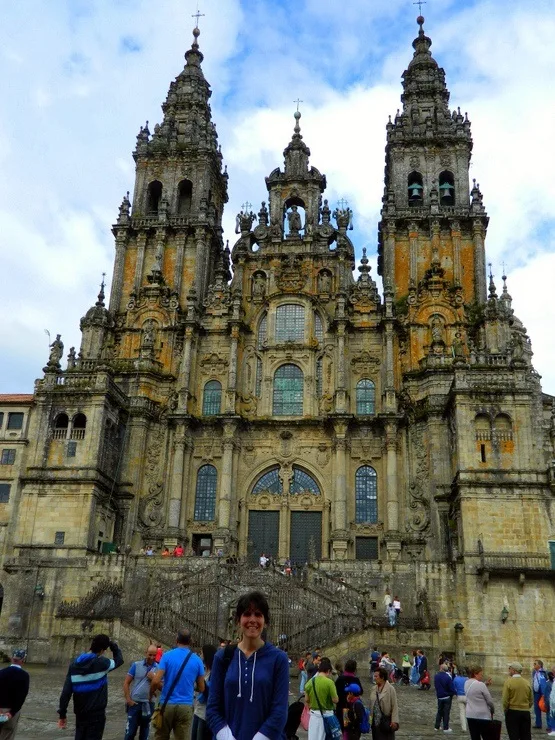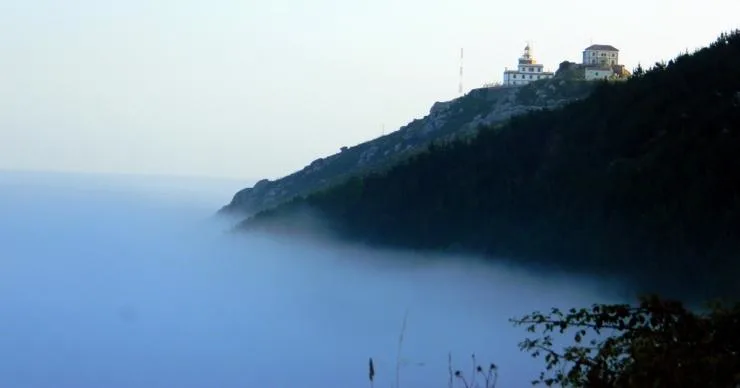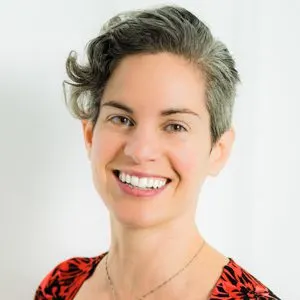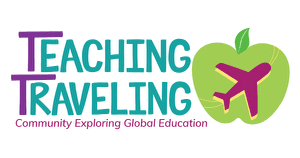
Teaching Traveling: Want to be inspired? Here’s the fascinating story of a teacher traveler named Kelly. Kelly, tell us a bit about your background.
Kelly: My name is Kelly. Currently, I teach 8th grade English Language Arts in central Massachusetts, where I have lived most of my life, except for 3 years in South Florida. I have been teaching English since 1999, after a brief stint in non-profit marketing and public relations after college.
I am finishing up with my ESL practicum now in the hopes of transitioning to teaching ESL for the remainder of my career. My Masters is in Middle School and English. Outside of my life as an educator, I am a lifestyle blogger (www.alovelylifeindeed.com) and travel enthusiast, interested in gastronomy, wellness and sustainability.

While always afflicted with wanderlust, my travel life began after college, when I first gained independence with a car and my own money. Then, I began to explore the Northeast, taking road trips and camping when I could. With the exception of an earlier family vacation to Aruba, I made my first trip overseas in 2009.
I went to London solo, and had the time of my life. I was hooked. The next year, my then boyfriend and I went to Rome and in 2011, we went to Paris, where he proposed on our last morning there. We travel to Galicia, Spain every summer, where we have a home and where we will relocate, probably within ten years.
While we are here, we take frequent long weekends to explore the East Coast of the U.S. and Canada. Our goal is to slow travel, using our home in Spain as a European home base and a multi-family apartment building or two as income property and a home base here in the States. We also hope to do an extended camping or RV trip around the US, Canada and South America before we embark on our European adventure.
As a second language learner, I keenly understand the power of language and the value of first language literacy and how it affects language learning for new residents. I understand the challenges and frustrations that come with learning and the joy of triumph as milestones are reached. Perhaps this fuels my fire to teach and advocate for beginner ESL students.
TT: Wow! Tell us more about your travels!
K: With the exception of Spain, our European travel has been confined to my November Thanksgiving break from school. Because of the shoulder-season timetable and the short stay, these destinations were affordable and provided a launch pad for a whirlwind of sightseeing, as well as a wish list for the next time we visit.

When we are in Spain, we visit with family and friends in Galicia, but also travel by car around the country. For example, one year, we explored much of Galicia, including the Rias Altas and the Rias Baixas. We have explored Valenca and Porto in northern Portugal, and we have explored Bilbao, as well as Gijon and Cangas de Onis in the Picos de Europa in Asturias.
TT: How did you find and then fund your travels?

K: Our travel inspiration comes from various sources… our own wanderlust, magazines, websites, travel bloggers, friends’ experiences, television shows (even Mister Rogers’ Neighborhood!), books, movies, maps, bucket lists… just about anything goes.
My husband and I save and plan ahead for our travel. For example, we use the 52-week money challenge to cover our airfare to Spain and then we save in other areas too. Instead of going out for dinner where we might spend $50, we put the $50 into savings and stay in.
We also accumulate points on a card that awards double travel points for every dollar spent, so we use one card for everything. Friends of ours just cashed in points and toured Eastern Europe with theirs. We pay in cash as much as possible, so that we are not saddled with debt. Or, if we use our cards, we pay them off before taking another big trip.
TT: Tell us one moment from your travels that was particularly powerful, interesting, or funny.
K: For me, spending time in Spain is always powerful. I am not fluent in Spanish and certainly not in Gallego (Galician), the dialect which most of my family speaks. I am like an ESL kid… a SLL kid. There is so much I want to say that I simply cannot. My husband is the only person with whom I can truly communicate when we’re in Spain. I can have surface conversation, but not true communication.
Because of this, I am more sense-aware. Body language becomes increasingly important. Everything I see, hear, smell and taste is critical to my understanding. It’s an experience that everyone should have at least once… perhaps that is the cure for intolerance… once you have been a stranger in a strange land, you may see things more clearly, with more patience and empathy. Travel provides this like nothing else.
Transitioning from the fast pace of my American life to the “everything in time” / café culture pace of rural Spain is much easier than the reverse. After spending time in Spain, it is much harder to transition back to the U.S. Overstimulation makes me long for the simpler lifestyle that Galicia affords. Everything gets done, but in time. Maybe people understood that long ago… like Robert Frost, in his poem “A Time to Talk.”
When a friend calls to me from the road
And slows his horse to a meaning walk,
I don’t stand still and look around
On all the hills I haven’t hoed,
And shout from where I am, “What is it?”
No, not as there is a time to talk.
I thrust my hoe in the mellow ground,
Blade-end up and five feet tall,
And plod: I go up to the stone wall
For a friendly visit.
There’s always time. The work will get done. Enjoy life. Take time for others.
TT: Beautiful! How have your travels impacted you as a teacher, and in your current career?
K: I love to share my experiences with my students. I share pictures, stories, travel memoirs I’m reading, travel tips and my own long term goals. I share my challenges with second language learning and my wish list for future travel.
I use wish lists (ex. 30 before 30) and travel as a springboard for reading and writing projects. I want to ignite a spark for travel that leads to a love of lifelong learning. Middle school curriculum will never make or break anyone, but sparking inquiry and passion… that can last forever.
Also, as a second language learner, I am especially sensitive to the needs of my ESL students. I am in awe of their ability to transition between languages, between registers… to function, not only in a social context, but also in an academic one.
Their experience is valuable to the members of their learning community, but often, they may be shy or reserved and less eager to share their stories. These brave souls, who are moved, like it or not, to a new place, with a new language, are stars. They have so much to contribute… they just need a vehicle to shine.
TT: How have your travels impacted you as a person?
K: Travel has made me a more patient person. I understand that everything will happen in time. Café culture is fabulous. All people are trying to make their way through this life… CEOs and laborers… teachers and students… we all have something to offer and we all have something to learn. Farming societies have the best food. Cooked food, even if you don’t like it, always trumps standardized chain food cooked from a bag. Smiling is universal.
TT: What advice do you have for teachers who are dreaming of travel, or travelers dreaming of teaching?
K: Do it. Get your passport. If you’re not sure, start small. Explore your own capital city. Move on from there. Save money like it’s your job. Don’t wait for the perfect time… it will never be there. Go for it and figure it out as you go along. Be patient and willing to learn. Have fun!
TT: Thanks so much, Kelly! Readers, what questions or comments do you have for this teacher traveler?

The author, Lillie Marshall, is a 6-foot-tall National Board Certified Teacher of English from Boston who has been a public school educator since 2003. She launched TeachingTraveling.com in 2010 to share expert global education resources, and over 1.6 million readers have visited over the past decade. Lillie also runs AroundTheWorld L.com Travel and Life Blog, and DrawingsOf.com for educational art. Do stay in touch via subscribing to her monthly newsletter, and following @WorldLillie on social media!


James
Saturday 8th of February 2014
That puppy bush in Bilbao is something else ... great interview!
Anil Sahu
Saturday 25th of January 2014
Thanks Lillie for you very nice work. Actually the whole world is like a book and when we travel around the world we learn many new lessons. You have been doing a great work. Travelling and tourism is like learning. Tourism enriches our knowledge and it is capable to increase our knowledge in many fields.
Paula Táboas
Wednesday 22nd of January 2014
Amazing you have been at "playa de las Catedrales"!!! It's a pleasure read your articles. Ir' funny because people from Galicia say the westernmost point of Iberian PenÃnsula is Finisterre; however portuguese people confirm this point is located at "Cabo da Rocha" in Cascáis, a nice historic village very close to Lisbon. Cheers from Galicia!!
Kelly
Wednesday 22nd of January 2014
Thank you, Lillie, for featuring me on Teaching Traveling! I am thrilled! As my husband and I travel more, it makes me a stronger teacher, because it's in life's experiences that we learn. Travel makes us all students. I have learned more through traveling and meeting people than I ever could have learned from a book. I encourage my students to see the world, because it is in that process that they will truly learn, and then, to share their experience with others. Pay the inspiration forward. It's a win-win. Thanks again!